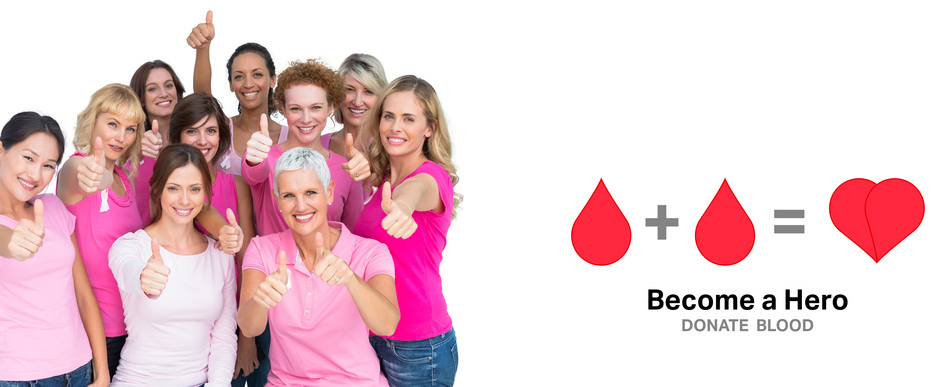The Lives You Could Save
June 14 is World Blood Donor Day. Donate Blood, Save Lives.
She was a two-year-old with leukemia and lymphoma who needed frequent blood and platelet transfusions while she was being treated for her illness—three bone marrow transplants, seven rounds of chemotherapy, and surgery to remove her spleen. All told, she received 77 units of blood from over 70 strangers. Today, she is happy, healthy, and at times, according to her mother, mischievous. But neither she nor her parents will ever forget the impact that strangers can have. “They saved her life,” says her mother. “It’s as simple as that.”
He was a 31-year-old who nearly died in a motorcycle accident. 200 units of blood later, he is thriving and now the father of two. His kids are too young to know this, but without the 43 strangers who donated blood, their father would not have survived and they would never have been born.
She was a young mother who needed a high-risk emergency cesarean to deliver her premature son. Uterine hemorrhaging threatened her life when she lost half of her blood after giving birth to her third son. After receiving nearly 30 units of blood, platelets, and plasma, this young mother was able to return home and raise her sons.
4.5 million Americans will need a blood transfusion this year. In fact, every two seconds, someone will need blood. The demand is high, but less than 10 percent of Americans donate blood annually. There are millions of other sons, daughters, mothers, and fathers out there who will need blood because of an accident or an illness.
Kindness and generosity always have a ripple effect. But the effect of donating blood is immeasurable. In honor of World Blood Donor Day (June 14), the SimpleFill team would like you to consider donating blood and saving some lives.
Are There Health Benefits To Donating Blood?
Absolutely! Not only do you do good for others, but you also do good for you. Read on to learn how you can benefit while saving lives.
- Peace of mind. You get a mini check-up when you donate blood. Your blood is tested for 13 different diseases including West Nile and HIV. If you test positive, you’ll be notified immediately. This is no reason to skip your annual exam, but you can gain some peace of mind about your health
- Altruism is good for your health. A study in Health Psychology found that people who volunteered for altruistic reasons has significantly reduced risk of mortality four years later than those who don’t exercise altruism.
- Helps prevent heart and liver ailments caused by iron overload. Donating blood can help regulate your iron levels.
- Reducing iron levels in the body can reduce the risk of developing cancer.
- After donating blood, the body works to replenish the blood loss. This stimulates the production of new blood cells and, in turn, helps in maintaining good health.
About Donating Blood
- It’s a simple process and you can either donate through your local Red Cross chapter or a local hospital.
- The Red Cross supplies nearly 40 percent of the nation’s blood supply.
- Eighty percent of the blood donations given to the Red Cross are collected at blood drives set up by community organizations, companies, high schools, colleges, places of worship or military installations. The remaining 20 percent are collected at Red Cross blood donation centers.
- Blood donation is a four-step process that, from start to finish usually takes just over an hour: registration, medical history and mini-physical, donation, and refreshments. The actual donation part takes about 15 minutes.
- The average adult has 10 pints of blood; roughly 1 pint is given during donation.
- There are four types of transfusable products that can be derived from blood: red cells, platelets, plasma, and cryoprecipitate. Each pint donated usually yields two or three of these products meaning that your donation can save up three lives.
- A healthy donor may donate every 56 days.
O! The Lives You Could Save!
- Type O blood is the universal blood type (meaning it can be given to any blood type), and is needed in emergency situations before a patient’s blood type can be determined. Only about 7 percent of Americans have Type O blood.
- Type AB blood is the only universal plasma type and only about 4% of the population has Type AB blood.
Why is Plasma So Important? Lives depend on plasma protein therapies.
Plasma can help people with bleeding disorders whose blood will not clot properly. A minor injury for these patients can result in internal bleeding, organ damage, and death.
Intravenous Immunoglobulin Therapy or IVIG—There are more than 150 primary immune deficiency disorders (PID) and people suffering from these diseases need IVIG to fight off infections because they have improperly functioning immune systems, and they do not respond to traditional antibiotics. Without IVIG, they are exposed to frequent and often serious infections.
People with the following conditions benefit from IVIG treatments that depend on plasma.
- Immune deficiencies like immune thrombocytopenia
- Kawasaki disease
- Guillain-Barre syndrome
- Chronic inflammatory demyelinating polyneuropathy
- Lupus
- Myositis
- Neurological diseases like myasthenia gravis or multiple sclerosis
- People who receive bone marrow transplants may also use IVIg to prevent infections.
You may know someone who has needed blood. Or someone who loves a person who has needed blood. You may need blood someday. Either way, it only takes an hour of your time and the good you can do is limitless. Be a hero and donate blood.
To learn more about blood donation and the Red Cross, please visit redcross.org or call 1-800-RED CROSS (1-800-733-2767).
Uncategorized